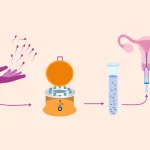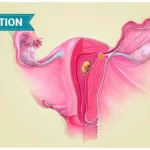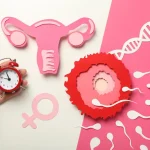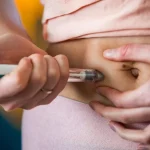What Is the E2 Test in IVF and Why Does It Matter?
When you begin fertility treatment, your doctor will closely monitor your hormones to ensure everything is progressing smoothly. One of the most important of these hormones is estradiol (E2) — and that’s where the E2 test comes in. It’s a simple blood test that measures estradiol levels, giving fertility specialists vital insight into how your ovaries are responding to treatment. Estradiol is a form of estrogen that supports egg development, uterine lining growth, and overall reproductive function.
During in vitro fertilization (IVF), the E2 test helps doctors track follicle growth, determine the right time for the trigger shot, and make sure your hormone levels are balanced for successful egg retrieval. In short, it’s a small test that plays a huge role in your IVF success.
The E2 test measures the amount of estradiol, the most active type of estrogen in your bloodstream. In women, estradiol is mainly produced by developing follicles in the ovaries, and its levels rise as eggs mature.
By tracking E2 levels, fertility doctors can understand how your body is responding to stimulation medications used during IVF. This helps them tailor your treatment for optimal results.
The test also gives clues about the overall health of your reproductive system. For instance, abnormal levels may indicate issues with ovarian reserve, hormone balance, or even potential complications like ovarian hyperstimulation syndrome (OHSS).
Why Is the E2 Test Important in IVF?

Estradiol is one of the best markers for ovarian response. During IVF, your body is given medications to encourage multiple follicles (and therefore multiple eggs) to grow. As these follicles mature, they release estradiol, and the E2 test measures how much is being produced.
Here’s why it’s so important:
- To Track Follicle Development
Rising E2 levels mean your follicles are growing well and responding to medication. - To Time the Trigger Shot
When E2 reaches a target range, it tells doctors your eggs are ready for final maturation. - To Avoid Complications
Extremely high E2 levels can increase the risk of OHSS, so your doctor may adjust medication or trigger timing to keep things safe. - To Predict IVF Outcomes
Balanced E2 levels usually indicate a healthy environment for both egg retrieval and later embryo implantation.
Essentially, this test helps fine-tune your entire IVF cycle, ensuring the process is both effective and safe.
When Is the E2 Test Done During IVF?
The E2 test isn’t a one-time procedure; it’s done several times throughout your IVF cycle.
Here’s a general timeline:
| Stage of IVF | When It Happens | Purpose of the Test |
| Baseline | Before starting stimulation (usually Day 2 or 3 of your cycle) | Confirms your hormones are low and you’re ready to start medications |
| Mid-Stimulation | Every 2–3 days after starting injections | Monitors how your ovaries are responding to treatment |
| Pre-Trigger | Just before the trigger shot | Ensures your eggs have reached the right maturity level for retrieval |
These regular tests help your fertility specialist make data-driven decisions about dosage, timing, and retrieval schedules.
What Are Normal E2 Levels During IVF?
Estradiol levels rise as follicles mature, so the “right” level depends on where you are in your IVF cycle.
| IVF Stage | Typical E2 Level (pg/mL) | Meaning |
| Before stimulation | Below 60 | Normal baseline before starting medications |
| Mid-stimulation | 200–600 per mature follicle | Indicates healthy growth of follicles |
| Before trigger shot | 2,000–4,000 (total) | Ideal range for multiple mature eggs |
| After retrieval | Decreases significantly | Normal eggs have been collected |
Each mature follicle typically contributes 200 to 300 pg/mL of E2, so the more mature follicles you have, the higher your overall level.
Can I Get Pregnant With Low E2?
Low estradiol (E2) levels can make conception both naturally and through IVF more challenging, but pregnancy is still possible with proper medical support.
In IVF, low E2 levels often mean that the ovaries aren’t responding strongly to stimulation medications, which can result in fewer mature eggs. However, quality matters more than quantity. Even if fewer eggs are retrieved, some may still be high-quality and capable of fertilization and implantation.
Your fertility specialist may adjust your medication dosage or extend your stimulation phase if E2 levels remain low. In some cases, doctors may also prescribe supplements or additional hormones to help boost your estradiol production.
It’s also important to note that E2 levels aren’t the only factor determining success. Your age, egg quality, and uterine health all play major roles in achieving pregnancy. So while low E2 may require more monitoring, it doesn’t automatically rule out success especially with a personalized treatment plan.
What Do Abnormal E2 Levels Mean in IVF?
If your E2 levels are too low or too high, your doctor will interpret these results in context with ultrasound findings.
● Low E2 levels might suggest under-stimulation or poor ovarian reserve.
● High E2 levels could mean over-stimulation, putting you at risk for OHSS.
In both situations, your fertility team will adjust your medication dosage or trigger timing to bring hormone levels back to a safe and effective range.
The goal is always to balance enough estrogen to support follicle growth, but not so much that it causes complications.
How Is the E2 Test Performed?

The E2 test is a straightforward blood draw. A small sample is taken from your arm, and results are usually available within a few hours. Because estradiol levels can fluctuate during the day, fertility clinics often schedule tests in the morning for consistent results.
This test is quick, minimally invasive, and one of the most important tools for monitoring your IVF progress.
Final Thoughts
So, what is the E2 test in IVF? It’s a vital hormone test that tracks your body’s response to fertility medication and helps your doctor decide the perfect timing for egg retrieval.
Healthy estradiol levels mean your ovaries are responding well, your eggs are maturing properly, and your uterus is preparing for implantation. Even if your E2 levels are low, modern IVF protocols make it possible to adjust treatment and still achieve great results.
Understanding your hormone levels gives you more confidence and peace of mind during IVF because knowledge truly is power when navigating fertility treatment.
At The Bridge Clinic, we use advanced hormone testing, including E2 monitoring, to guide every step of your IVF journey. Our expert fertility specialists tailor each treatment plan to your unique needs, maximizing your chances of success with precision and care.
Contact The Bridge Clinic today to schedule a consultation and learn how comprehensive hormone testing can support your path to parenthood.
Follow us on our social media channels below:
Explore our related articles below:








